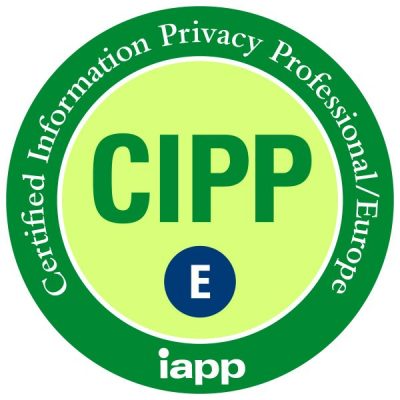
CIPP/E Update: What you need to know
From July 1, 2021 the CIPP/E body of knowledge and exam will be updated.
The changes are not huge. They are supposed to represent about 10% of the content (which equates to around 9 of the 90 questions) but given the information that’s been provided about the changes, it’s likely to be less than that.
According to the iapp, the following new topics will be added to the CIPP/E body of knowledge and exam from July 1, 2021:
CIPP/E Update: Standard Contractual Clauses
Examinees must understand the post-Schrems II position in regard to Standard Contractual Clauses. In particular, that in addition to the use of SCCs, organisations transferring data out of the EEA who are relying on SCCS must also conduct what are now commonly being referred to as ‘transfer impact assessments’ or TIAs. These TIAs will involve a consideration of the laws in each recipient country to ensure essential equivalence to EU law for personal data being transferred under SCCs or BCRs. If the laws are not essentially equivalent, companies must provide additional safeguards or suspend transfers.
To facilitate this assessment, many organizations are relying on questionnaires sent to organisations in the non-EEA or adequate jurisdictions. The are also adopting a combination of technical, organizational and contractual safeguards, using the advice provided to date by the EDPB on what might be appropriate supplementary measures..
Note: If additional guidance is provided by the EDPB on this topic, you should be aware of the same.
CIPP/E Update: Artificial Intelligence, machine learning and ethical issues
The content has expanded its coverage of Artificial Intelligence and Machine Learning. In particular it refers to ethical considerations around the use of AI/ML. Examinees will need to have some appreciation of the issues around the use of AI/ML and in particular some of the ethical concerns. This is consistent with recent releases from the European Commission on the topics of AI.
For more information, examinees are directed to:
European Commission: Strategy for Artificial Intelligence: https://digital-strategy.ec.europa.eu/en/policies/strategy-artificial-intelligence
Ethical guidelines for Trustworthy AI: https://iapp.org/media/pdf/resource_center/AIEthicsGuidelinespdf.pdf
Updated CIPP/E Body of Knowledge
The updated CIPP/E Body of Knowledge is available here.
The changes are:
- Transfer Impact Assessment has been added to Domain II/International Data Transfers.
- Machine Learning and Ethics has been added to Artificial Intelligence in Domain III/Internet Technology and Communications
Train with us
Privacy 108 is running its next CIPP/E training course on 16th and 17th August.
More information here.
What included:
- 2 days of instructor led training
- Iapp text book and course notes
- Exam voucher
- 12 months iapp membership
- Exclusive access to study resources and practice exam questions available only to Privacy 108 course attendees.
What do our students think?
What a super course! As far as courses go this has been really enjoyable and exciting to do, compared to many other dry subject matter areas I’ve covered in my career.
For anyone who wants to do the exam, I would give the following feedback … Attend Jodie’s training session!
To register or for more information, click here.
How can we help?
Not sure whether you’re ready to take the CIPP/E exam or interested in finding out more about what’s required:
- Try our mini-CIPP/E exam by completing the form at the end of this post.
- Test your knowledge of CIPP/E Domain 1 by completing the form at the end of this post.
And you can also read some of our previous blog posts relating to the CIPP/E:
- What you need to know for CIPP/E Domain 1: Domain 1: The most challenging CIPP/E Domain? (privacy108.com.au)
- The new SCCs: Concluding the Saga? The New SCCs for GDPR-Compliant Third-Party Data Transfers Have Arrived – Privacy108 | Australian Data Privacy & Security Consulting
- CIPP/E and the History of Data Privacy – Privacy108
- A Privacy Glossary With Key Terms for CIPP/E (Plus a Free Quiz!) – Privacy108 | Australian Data Privacy & Security Consulting
- Free on-line GDPR Training: Our Top 5 Picks – Privacy108 | Australian Data Privacy & Security Consulting
- Preparing for the iapp CIPP/E Exam? Some exam prep tips – Privacy108 | Australian Data Privacy & Security Consulting
To register or for more information, click here.
